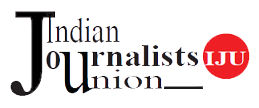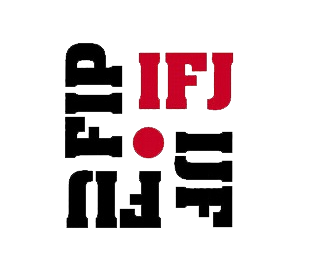The Indian Journalists’ Union's (IJU) two-day 9th Plenary, hosted by the Punjab and Chandigarh Journalists Union (PCJU) was held at Guru Nanak Dev University in Amritsar on 27-28 October, 2018, with over 270 delegates from 16 States attending. The plenary discussed the burning issues affecting the fourth estate of democracy. It covered a range of issues and challenges concerning the safety of journalists and freedom of the media, a new wage board for journalists, Media Council, Committees to look into sexual harassment of women journalists at workplace, with the participants expressing apprehension over the rise of intolerance and atrocities against journalists across India.
Inaugurating the Plenary, former cricketer and current Punjab Cultural Affairs Minister Navjot Singh Sidhu called upon the IJU to stand fearlessly for truth and freedom of the press. Sidhu who deputised for the Chief Minister Capt, Amarinder Singh, who was on foreign tour, said “The press should not fear anybody, because it’s the fourth pillar of democracy. The IJU is a powerful organisation with more than 28,000 members; do not fear anybody, and face them. 'Sadda haq aiteh rakh (keep our rights here)' should be your logo.” He assured to raise the issue of the safety and security of the press fraternity both in the State Assembly and in Parliament.
Member of Parliament Gurjeet Singh Aujla, who also addressed the session, expressed concern over the growing atrocities against journalists across the India and expressed solidarity with the journalists in their fight for press freedom and safety. Minister of Cooperation and Jails, Sukhjinder Singh Randhawa who attended the closing ceremony of plenary session on the second day, called on the journalists’ community to be brave in disseminating information. “You are freedom fighters, if your pen stops, we will be again slaves”, said the minister referring to most of freedom fighters as good writers who propagated their ideas through writings. He underscored the significant of role of media to keep healthy democracy and urged the journalists to continue in their service to nation. Congress MLA Harpartap Singh Ajnala and Punjab BJP President Shwait Malik also attended the concluding Session.
Passing the leadership to his successor, outgoing President SN Sinha hoped that under the leadership of Amar Devulapalli and Sabina Inderjit, the IJU would touch new heights and emerge stronger and a larger organisation.
Deliberations
The Plenary called upon the Union government to enact a law for the protection of journalists without any further delay, as the demand has been long pending. The law was critical as the attacks and killings of journalists in the country were menacingly growing. “The irony is that in all the cases, the culprits are going scot free, as the report of none other than the Press Council Sub-committee on Safety of journalists has revealed,” it said. It noted that the media, which is acknowledged as the fourth estate was only seeking protection and not privileges like the other three organs of the State--Legislature, Executive and Judiciary.
More than 120 journalists were killed in the country in the last 25 years and 95 per cent of the cases are still languishing in the labyrinths of pending court cases. This year alone 7 journalists were killed so far including the assassination of the Rising Kashmir Editor Shujaat Bukhari in Srinagar in June this year. The case of prominent editor Gauri Lankesh who was killed in Bangalore in September last year is still at the investigation stage.
The Plenary felt that unprecedented attacks on journalists and the growing atmosphere of fear amongst the working journalists were not only impacting the profession but also the right of the citizen to get information, key to our democracy. “Further, this is impacting the Independence and freedom of the press, which again has come under grave threat. The governments both at the Centre and the States are trying to control media organisations by withholding of advertisements, blocking transmission of news channels by controlling cable operators, stopping other professional facilities and worse exerting pressure through misuse of investigating and enforcement agencies,” it said.
It called upon the working journalists in the country to come together to fight for freedom of expression, in defence of independent, safety and welfare of journalists. It sought all the political parties to include rights of the free media and welfare of the working journalists in their Manifestos in the forthcoming elections for State Assemblies and Parliament. It also called upon all the ruling parties to implement the promises made to the journalists in their election manifestos in the past.
The Plenary congratulated the initiative of the Telangana Union of working Journalists (TUWJ) and Andhra Pradesh Union of Working Journalists (APUWJ) to constitute a 3-member Independent Commission, through Media Education Foundation of India (MEFI). The first of its kind Commission in the country is headed by a former Supreme Court judge, Justice B Sudershan Reddy and consists of former member of UPSC, Prof. K S Chalam and veteran journalist Ch Rajeshwar Rao. The Commission would go into the entire gamut of profession of journalism and conditions of working journalists in both the Telugu States.
The Plenary condemned the Union government’s manoeuvres to control the Press Council of India (PCI) and the Central Press Accreditation Committee (CPAC) and impinge on the right to freedom of expression and access to information. “The reconstitution of the 13th PCI is mired in controversy, and decisions taken by a truncated Council need to be overturned to restore the institution’s credibility. The IJU also expressed concern over the growing trend of ‘hire and fire’ and non-implementation of wage awards, notified by the Government of India.
The Plenary also expressed solidarity with the women journalists who have courageously joined the MeToo# movement. The IJU demanded that the all media organisations set up the mandatory Internal Complaints Committee (ICC) and implement the guidelines, laid down by the Supreme Court in well known Visakha case. It pledged to stand by the women journalists for fighting against the sexual harassment at the work place and on the line of duty and extend all the required help.
New General Secretary Sabina Inderjit in her acceptance speech highlighted the challenges of IJU and stated that she wants to see the changes in the union’s movement. She also sought cooperation from the members from across the country and urged the State units to set up their respective Gender Council. She further expressed concern over the growing sexual harassment of women journalists across the country and urged the members to stand against it.




